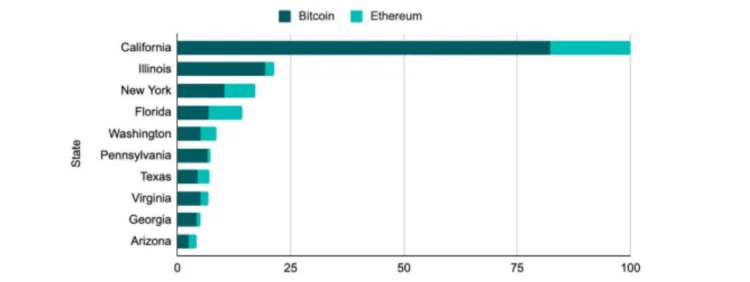A landmark bill was enacted by the Virginia Senate of the United States, which established a workgroup charged with examining the broader crypto and blockchain ecosystem and developing suggestions to promote the growth of the technology.

Legislators in Virginia introduced Senate Bill No. 339 on February 5 to solicit recommendations regarding promoting and expanding blockchain technology, digital asset mining, and cryptocurrencies in the state.
With 97 members voting in favor, one voting against, and two abstaining from the vote, the Virginia House of Delegates approved the bill on March 4.

On January 9, Senator Saddam Azlan Salim introduced the bill to exempt miners from the requirement of obtaining money transmitter licenses. Additionally, the bill prohibits specific ordinances:
“No license under this chapter shall be required of any person engaging in-home digital asset 37 mining, digital asset mining, or digital asset mining business activities, as those terms are defined in § 38 15.2-2288.9.”
Five senators, five delegates, two nonlegislative citizen members from the blockchain industry, and one nonlegislative citizen representing the local government will comprise the thirteen members of the new crypto work group.
By the commencement of the 2025 Regular Session of the General Assembly, the committee must have completed all of its investigations about the cryptocurrency ecosystem and submitted its recommendations by November 1, 2024.
Although other states in the United States, such as New York and Florida, exhibit greater pro-cryptocurrency stances, this state accommodates one of the most substantial Bitcoin and Ether-focused investors.

According to a report published, California residents conducted 43% of all Bitcoin and Ethereum web traffic searches on the crypto monitoring website CoinGecko. Illinois and Washington are two additional states that significantly affect the two cryptocurrencies. Pennsylvania, Texas, Virginia, Georgia, and Arizona follow suit.
A recent proposition from Virginia sought the allocation of $17,192 and $22,048 from the annual general fund, respectively, to the two newly formed commissions in Virginia focused on cryptocurrency and artificial intelligence.
